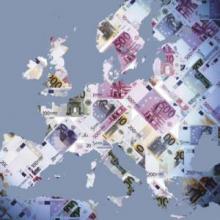Here's How U.S. Companies Can Clear European Regulatory Hurdles
Submitted by Joseph Tsidulko on

Matthew Finnie is CTO at Interoute, a European telecommunications and cloud services provider. He's also an advisor to the European Commission on ICT research and innovation and a member of the CONNECT Advisory Forum (CAF), advising the EU commission on investment priorities as part of the Digital Futures and the Horizon 2020 initiatives.
Interoute, the largest cloud provider in Europe, recently said it will open a new data center in Los Angeles, part of its Interoute Virtual Data Center global network.
[Related: Q&A: OpenDNS Founder On Cloud Security In The Transforming IT Landscape]
Finnie talked with IT Best of Breed about the many national laws and data sovereignty rules that make doing business in Europe such a challenge, and how Interoute's new U.S. facilities provide a platform that can help American companies overcome some of the regulatory hurdles and risks associated with international growth. Edited excerpts of the conversation follow.
As a cloud provider, most associate Interoute with the European market. So why are you now launching a data center in Los Angeles?
Our new L.A. Virtual Data Center is the second location Interoute is launching in the U.S. after New York, which we opened earlier this year. The key reason for Interoute’s expansion within the U.S. is to give American organizations looking to expand into Europe a simple, yet competitive platform to deal with the complexities of the European market, which as a collective is huge, and accessing it is considerably more complex. Interoute bridges the gap between Europe and the U.S.
The flip side of this is for our U.S.-based customers who use our services in Europe but want the same thing back home. To serve the U.S. properly, you need at least two locations, so we’ve added the Los Angeles zone. In building out in L.A., we’re ensuring that we have connectivity between two zones in the U.S. that we control and offer an end-to-end SLA on. We’re also looking to add another zone in 2015 to cover the Midwest.
What kind of businesses does Interoute hope to attract with this physical U.S. presence?
Interoute has an established U.S. presence that has been serving the enterprise and Internet sector for many years, providing some of the largest and most well-known Internet based businesses in the world with super-fast speeds across the Atlantic and into Europe. Because we have Virtual Data Centers in seven European countries, including dual zones in Germany and triple in the U.K., our platform is a very practical choice for any U.S. business that offers or is planning to roll out services in Europe.
You can put your data exactly where you need it to be. Being able to stay on the same platform and deliver your services locally means they’ll be faster and better performing, but it also gives you one control plane which is simpler and easier to manage.
What kind of regulatory hurdles do businesses looking to expand into Europe face?
Europe has many different markets with different local rules and regulations for things like data protection, which can impact how and where you need to place data. European institutions such as the European Commission are looking for ways to streamline this, but the way it works in the E.U. is that any laws that are put in place are interpreted nationally with slightly divergent outcomes. As someone who sits on the EU’s ICT advisory board to the European Commission, I don’t see that changing any time soon.
So how do you get around this?
In effect, this means that for many businesses operating here, it’s often the most practical thing to put your data in the country where you use it in order to be compliant. Interoute has 12 years of experience in removing the real complexity of the European regulatory environment through straightforward compliance, allowing you to place data in the market of choice such as Switzerland or Germany.
How does this compare to the U.S.?
The U.S. is a much more homogenous market and does not pose regulatory challenges in the same way as Europe.
NEXT: Bridging Continents






